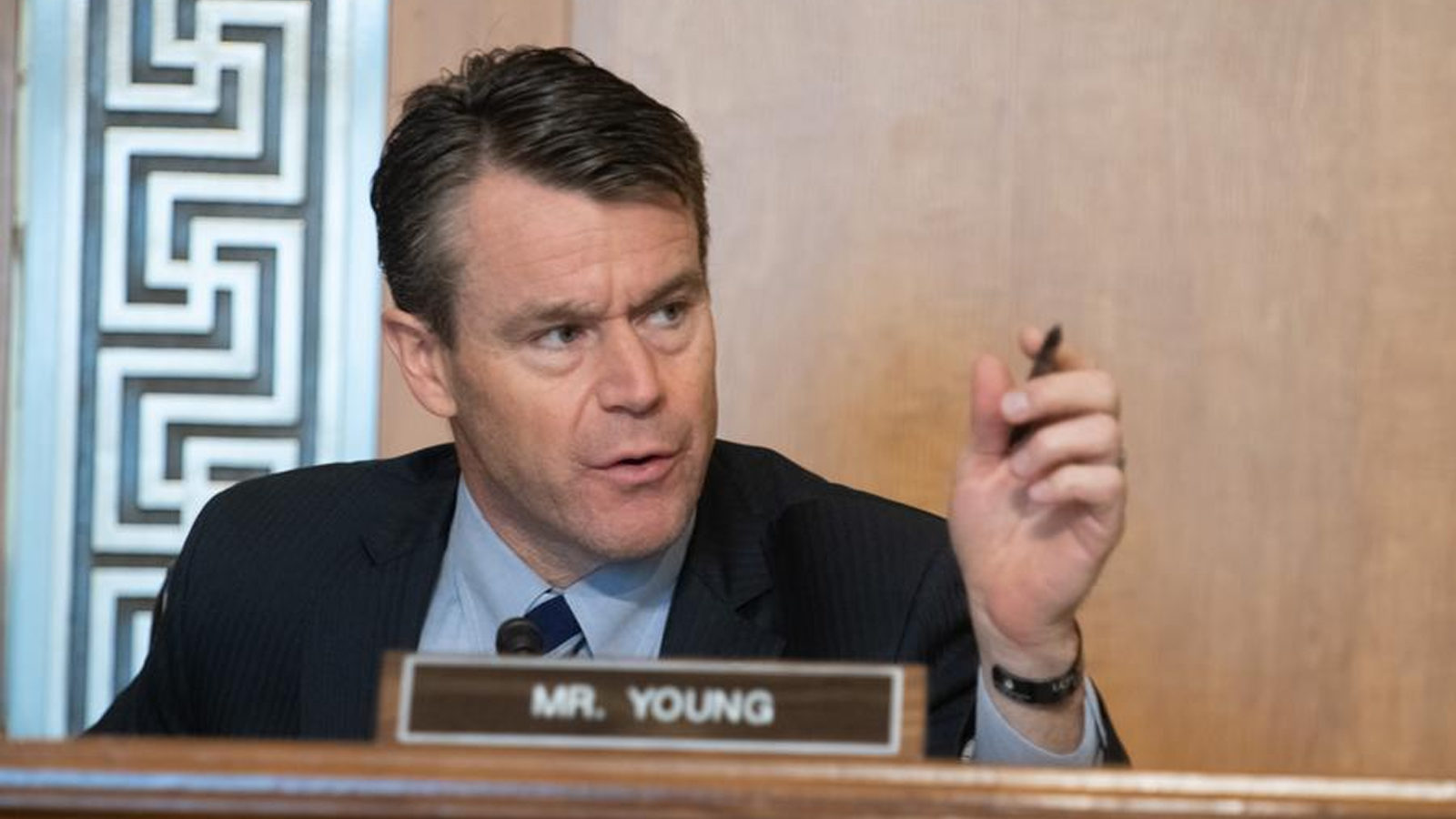U.S. Senators Todd Young (R-Ind.) and Debbie Stabenow (D-Mich.) reintroduced bipartisan legislation that would empower states and local governments to improve health outcomes by addressing the economic and social conditions in which people live, learn, work, and play.
The Social Determinants Accelerator Act would establish a federal interagency council to better leverage existing programs and address the barriers to coordination between health and social services programs. The bill would also help states and localities develop innovative strategies to address social determinants in their communities.
“A person’s health should not be dependent on where they live or the economic challenges they face,” said Senator Young. “If we attack the challenges, such as reliable transportation and affordable housing, that negatively impact the health and well-being of our most vulnerable citizens, we can make our citizens healthier.”
“Families know that staying healthy takes much more than just going to the doctor. Investing in nutrition services, housing, transportation, and good-paying jobs will make sure Americans have the resources they need to take care of their families, especially during the COVID-19 crisis. This bipartisan bill will improve the lives of Michiganders and expand Americans’ access to comprehensive health care,” said Senator Stabenow.
Social determinants of health are the economic and social conditions that affect an individual’s health and well-being, such as access to reliable transportation and stable housing. Addressing these factors can have a meaningful impact on the prevention and management of chronic diseases in our communities.
The Social Determinants Accelerator Act aims to address the social determinants of health by providing grants for state, local and tribal governments to develop strategies that target social determinants negatively impacting our most vulnerable populations. The legislation also establishes a federal interagency council to help grantees identify federal authorities, opportunities and strategies to tackle these challenges.
What They Are Saying:
“Aligning for Health is proud to support the reintroduction of the Social Determinants Accelerator Act. The legislation will catalyze cross-sector collaboration and will give state and local officials the resources they need to get beyond the siloes and develop innovative solutions to complex problems,” said Melissa Quick, co-chair of Aligning for Health.
“Across the country, there’s an incredible appetite for innovation to improve health outcomes by connecting health and social care. We strongly urge passage of the Social Determinants Accelerator Act to fuel community-led initiatives that address the most pressing local health challenges. Investments in social care infrastructure will lay the foundation for a more equitable healthcare system in the years to come,” said Taylor Justice, President and Co-Founder of Unite Us.
“CSH strongly supports the Social Determinants Accelerator Act. For decades we have seen the negative health impacts people experience due to a lack of housing, food, and safety. The impact of systemic and institutional racism compounds these negative factors for individuals and communities of color. We are hopeful that the SDAA will enable communities and providers to work across sectors and create improved access and opportunities enabling those in need to thrive,” said Deborah De Santis, President and CEO of Corporation for Supportive Housing (CSH).
“Vizient applauds Sens. Young and Stabenow for their leadership in introducing the Social Determinants Accelerator Act. Hospitals and health systems serve their communities and support patients by providing a whole-person approach to care. The legislation will catalyze needed cross-sector, data-driven community approaches to addressing social determinants,” said Shoshana Krilow, SVP Public Policy & Government Relations, Vizient.
“States are ready to lean into systemic reforms that address both the clinical and social influencers of health. Federal agency alignment and state grants will help drive these important efforts. 3M applauds legislative efforts to develop plans to address social determinants, including those that empower the use of clinical and social data to identify care gaps and inequities in the system,” said Megan Carr, Vice President, Regulatory and Government Affairs, 3M Health Information Systems.
“As an organization devoted to making it easier for people to connect with social services, we are thrilled for the reintroduction of the Social Determinants Accelerator Act by Senators Young and Stabenow. The legislation will help drive community-level approaches to help connect people with the services they need,” said Erine Gray, Founder and CEO, Aunt Bertha.
“Our surroundings – including where we are born, live, work and age – all have an impact on our health. This is why we need better coordination of care with programs that seek to address health and social needs. We strongly support the Social Determinants Accelerator Act of 2021, and are pleased Senators Stabenow and Young are introducing this legislation, which incorporates meaningful updates made in the House this summer, and will help communities work together to break down barriers, improve overall health and advance health equity,” said Justine Handelman, senior vice president of the Office of Policy and Representation for the Blue Cross Blue Shield Association.
“LISC invests in quality affordable housing, safety, good education, job opportunities and financial stability because they all factor into the health and well-being of a community. We enthusiastically support the Social Determinants of Health Accelerator Act because it will help states devise approaches that leverage the expertise of partners from multiple sectors – including community based organizations – who are committed to advancing health equity and closing interconnected racial health and wealth gaps,” said Julia Ryan, Vice President of Health Initiatives, LISC.
“As a health insurer committed to address health disparities, UPMC Health Plan strongly supports this common-sense, bipartisan bill which enhances the ability of the health care payers and providers to mitigate the causes of inequities with state collaborations. In addition to providing new tools to states looking at these issues, the Social Determinants Accelerator Act provides more resources to enhance existing state and community-based partnerships – like those supported through our UPMC Center for Social Impact – to address health inequities,” said John Lovelace, President, Government Programs, UPMC Health Plan.
The Social Determinants Accelerator Act has been endorsed by several organizations, including: Aligning for Health, Abriendo Puertas/Opening Doors, Acelero Learning, achi, Activate Care, Adagio Health, Alameda County Public Health Department, Alliance for Better Health, America Forward, American Association of Service Coordinators, American Association on Health and Disability, American Hospital Association, American Medical Association, American Society of Addiction Medicine, America’s Essential Hospitals, America’s Health Insurance Plans, America’s Promise Alliance, AMGA, Amida Care, Anthem, Association for Behavioral Health and Wellness, Association for Clinical Oncology (ASCO), Association of American Medical Colleges, Aunt Bertha, Aurora Institute, Blue Cross Blue Shield Association, Blue Cross Blue Shield of North Carolina, Bree Collaborative, CareSource, Centene, Change Healthcare, Children’s Hospital Association, Citizen Schools, City Year Inc., College of American Pathologists, Community ConneXor, Corporation for Supportive Housing, Council on Social Work Education, CyncHealth, Early Learning Alliance, eHealth Initiative, Enterprise Community Partners, Families USA, Forum for Youth Investment, Green & Healthy Homes Initiative, GreenLight Fund, Hawaii Health & Harm Reduction Center, Healthcare Leadership Council, Hep Free Hawaii, Humana, iMentor, Indiana Health Information Exchange (IHIE), Institute for Child Success, Johns Hopkins University, Johnson & Johnson, KidSucceed LLC, Lakeshore Foundation, Let’s Grow Kids, LexisNexis Risk Solutions, Local Initiatives Support Corporation (LISC), Lutheran Services in America, Macoupin County Public Health Department, Maxim Healthcare Services, Inc., Maycomb Capital Community Outcomes Fund, Meals on Wheels America, Medical Group Management Association, Molina, Nashville Health Disparities Coalition, National Alliance to impact the Social Determinants of Health (NASDOH), National Association of Accountable Care Organizations (NAACOS), National Association of Area Agencies on Aging, National Association of Counties, National Association of Social Workers, National Coalition on Health Care, National League of Cities, Nemours Children’s Health System, New Profit, New Teacher Center, Nonprofit Finance Fund, Nurse-Family Partnership, Orange County Board of Supervisors, Patient Access Network (PAN) Foundation, Partnership to Fight Chronic Disease, Penn Center for Community Health Workers, Population Health Alliance, Primary Care Collaborative, Project Evident, Purchaser Business Group on Health, Quantified Ventures, REDF, Results for America, Roca, Share Our Strength, Signify Health, Single Stop, SNP Alliance, Social Finance, Socially Determined, Solera, Springboard Collaborative, SSM Health, StriveTogether, The Community Transportation Association of America, The Michael J. Fox Foundation for Parkinson’s Research, The Root Cause Coalition, Tivity Health, TransUnion Healthcare, Uber Health, UPMC Health Plan, URAC, WelCore Health LLC, Western Governors Association, Wholesome Wave, Wyman Center, and YMCA of the USA.
Full bill text can be found here.











